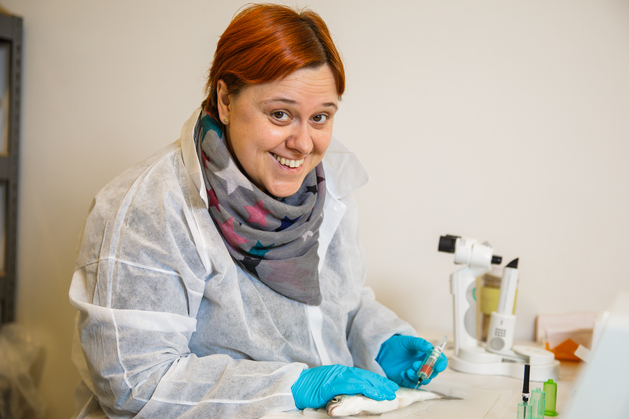RAS 4.0
Biologically driven automation of salmon production conditions in RAS

The main objective of RAS 4.0 is to improve fish wellbeing and production efficiency and reduce operational risks by developing integrated control systems for water quality, feeding and energy optimization.
Start
01. Jun 2021
End
31. May 2026
Funded by
The Research Council of Norway
Cooperation
NORCE, UiT, Pure Kaldnes Salmon, Lerøy Seafood Group, Searis, CreateView, OxyGuard
Project Manager(s):
Other Participants:
Chris Noble
Andre Meriac
Ingrid Måge
Lars Erik Solberg
Åsa Maria O. Espmark
Background
The vision of RAS 4.0 is to use a suit of sensors for measuring fish biology, water quality, and equipment performance in real time, allowing for improved optimization of the recirculating aquaculture systems (RAS) operation through interconnected control loops.
The RAS 4.0 project will create highly valuable knowledge that can be used by aquaculture and industry suppliers working to maximize the sustainability of these operations.
Realizing RAS potential will reduce the pressure to increase production in the sea and secure increased investment in this important environmentally sustainable solution to fish production.
Goal
The main objective of RAS 4.0 is to improve fish wellbeing and production efficiency of RAS and reduce operational risks by developing integrated control systems for water quality, feeding and energy optimization.
What we do
RAS 4.0 will build on existing infrastructure and technologies already implemented in the world class experimental RAS facility at Nofima Sunndalsøra (NCRA) and in commercial RAS (Lerøy Seafood Group) with new sensor technology and IoT, to allow efficient real-time data acquisition enabling automation.
Our strategy will be to qualify and install new cameras (CreateView) and existing smart water quality sensors and software (OxyGuard, Krüger Kaldnes etc.), and connect all sensors and equipment controllers through developed interfaces and IoT (Searis, OxyGuard, NORCE) at the Nofima Center for Recirculation in Aquaculture (NCRA) at Sunndalsøra.
We aim to develop control systems for ammonia, ozone, feeding and carbon dioxide in RAS through experimental work and modeling of data collected in two experiments done at NCRA and from the commercial partners.
At the end of the project, we aim to combine the main components of RAS in a digital twin and validate the results empirically. Here semi-commercial RAS at NCRA will be operated with integrated control loops and compared to the RAS with standard management.
In this project Nofima will contribute with competence in RAS, production biology, water chemistry, fish welfare and behaviour and data science.